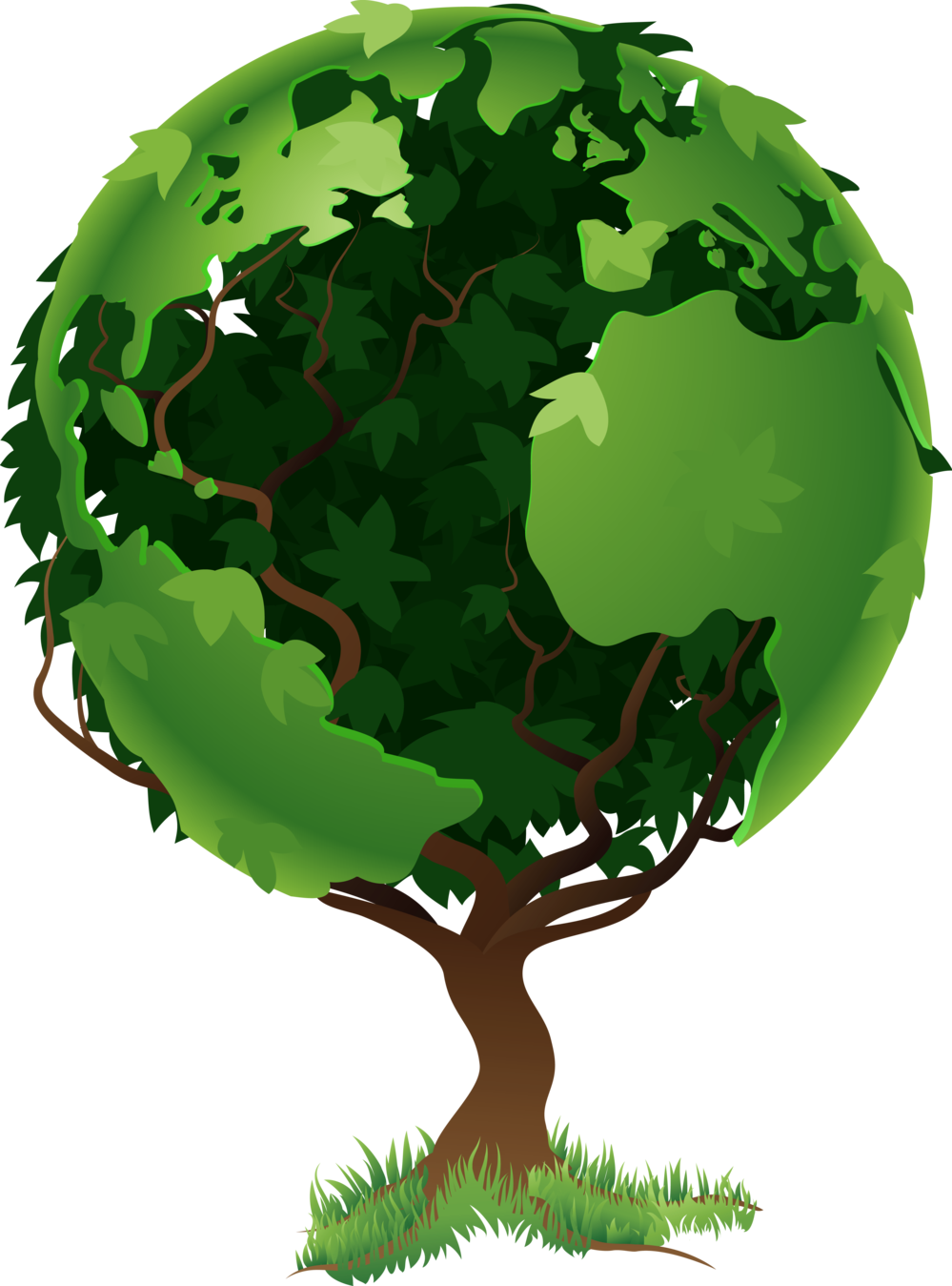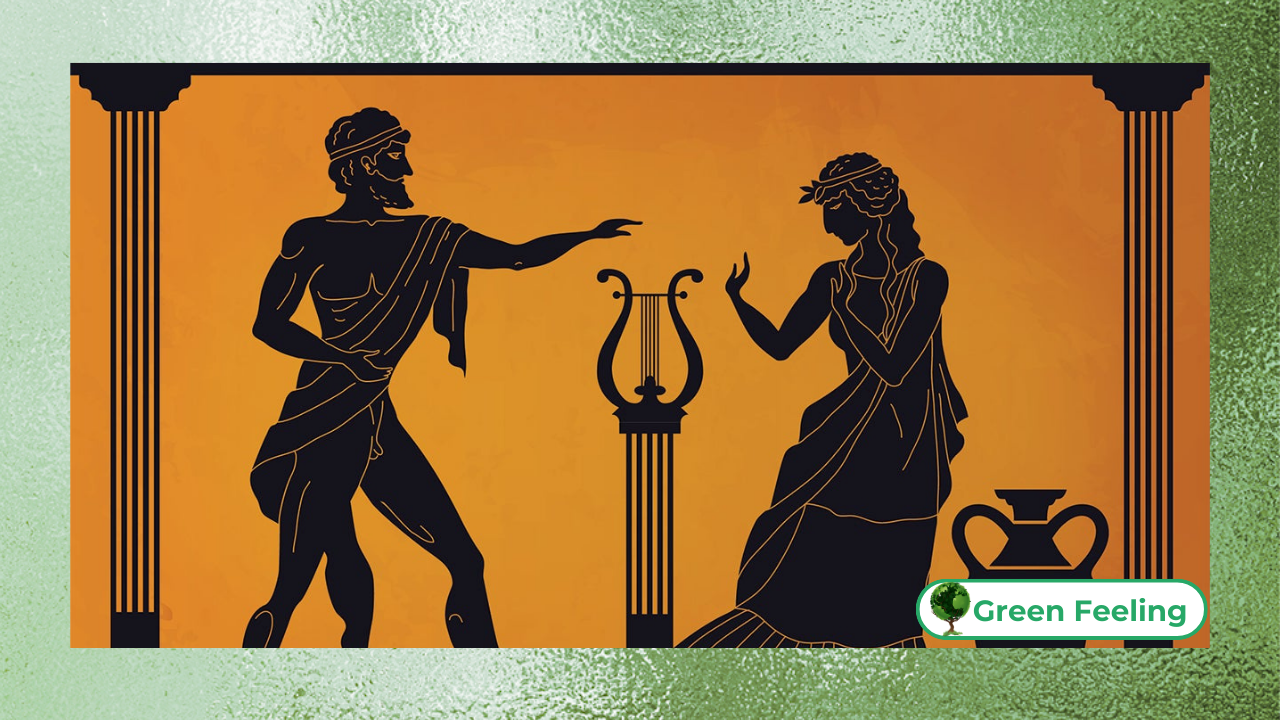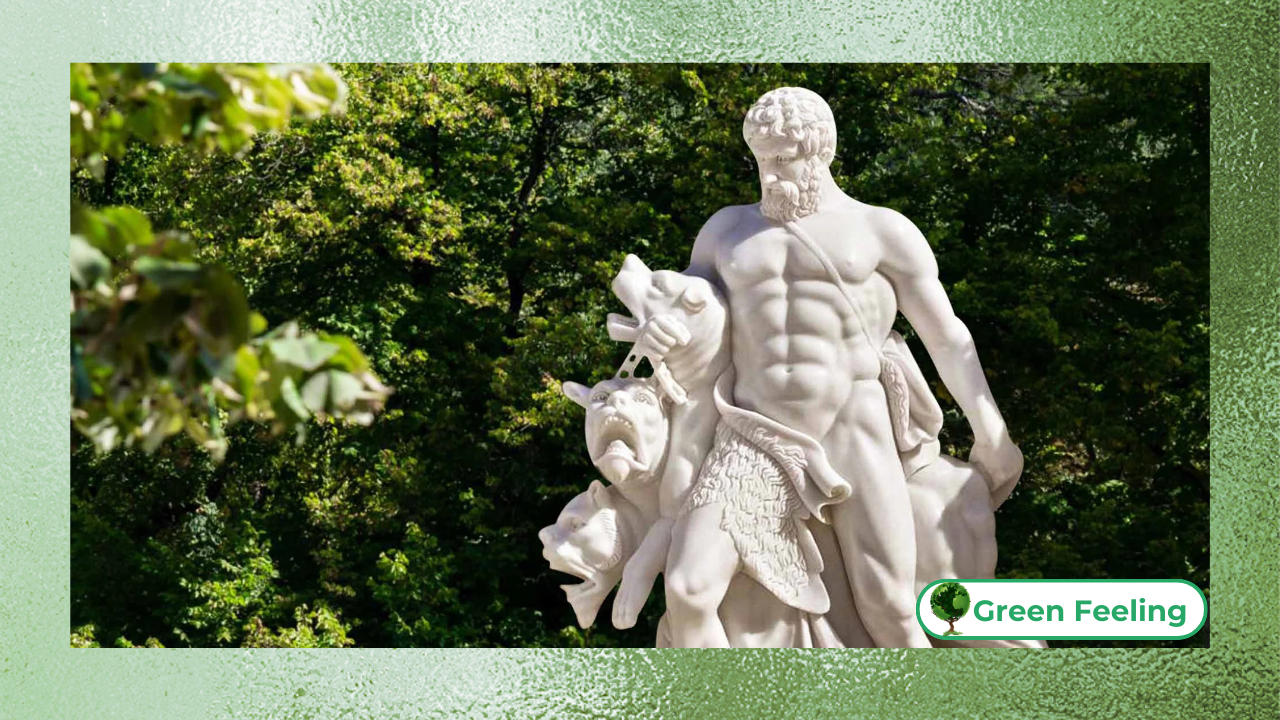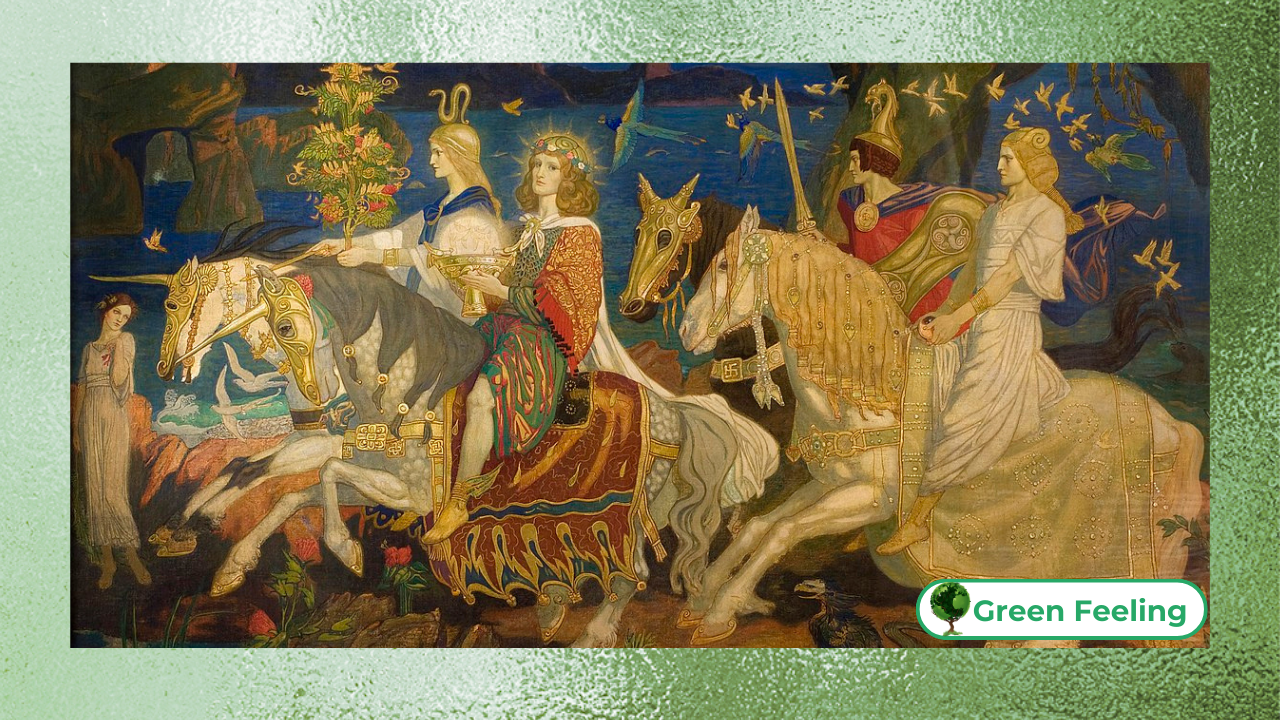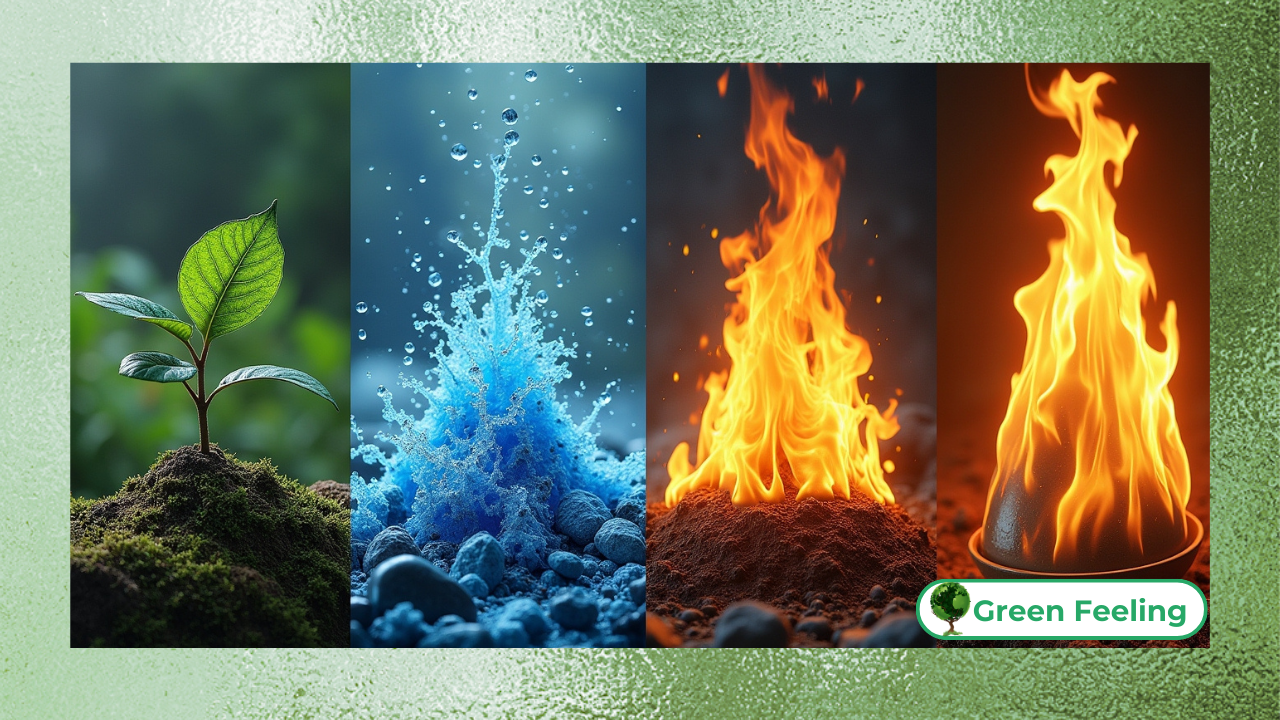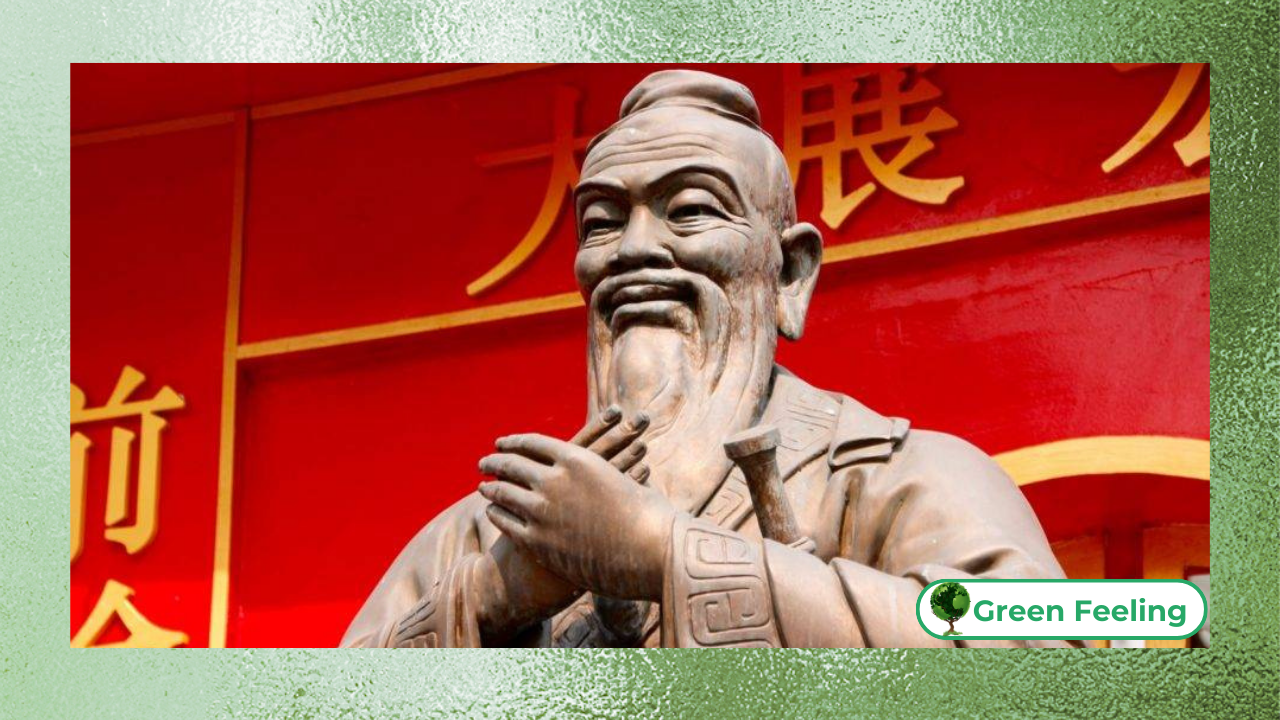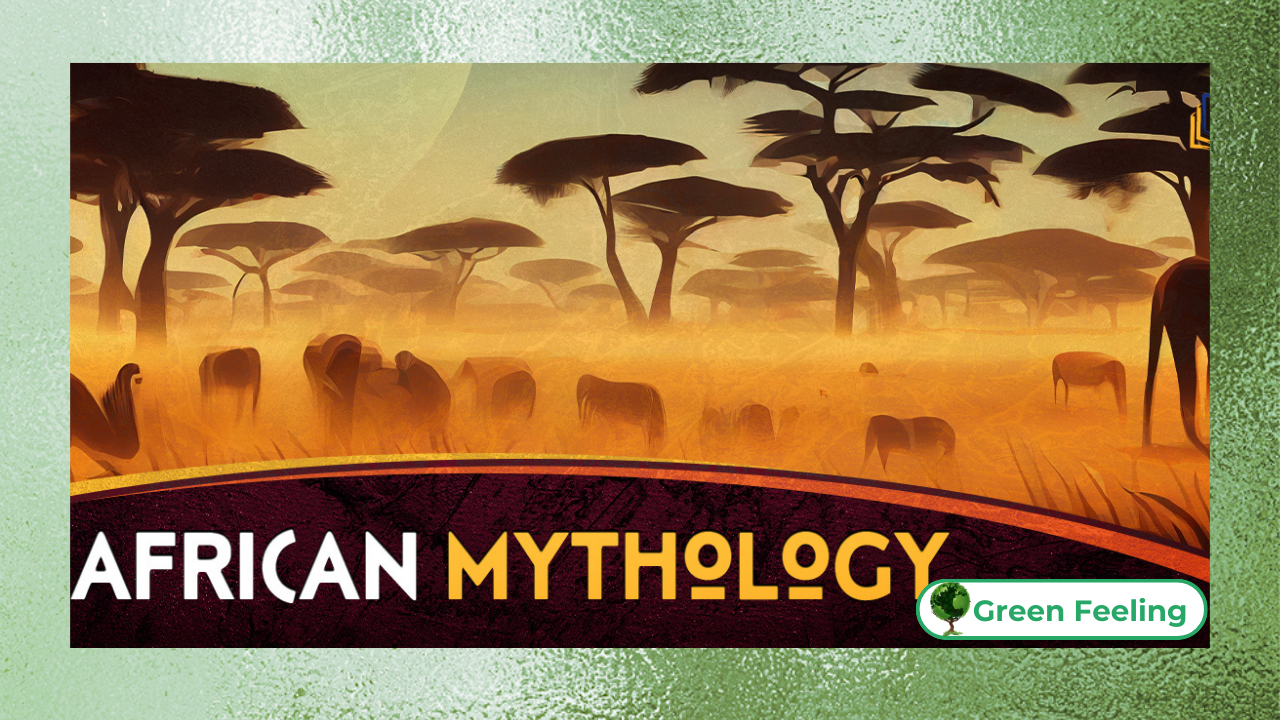African Mythology: Spirits of the Earth and Mystical Creatures
African mythology is a vast and rich universe of stories, beliefs, and traditions that reflect the cultural diversity of the continent.
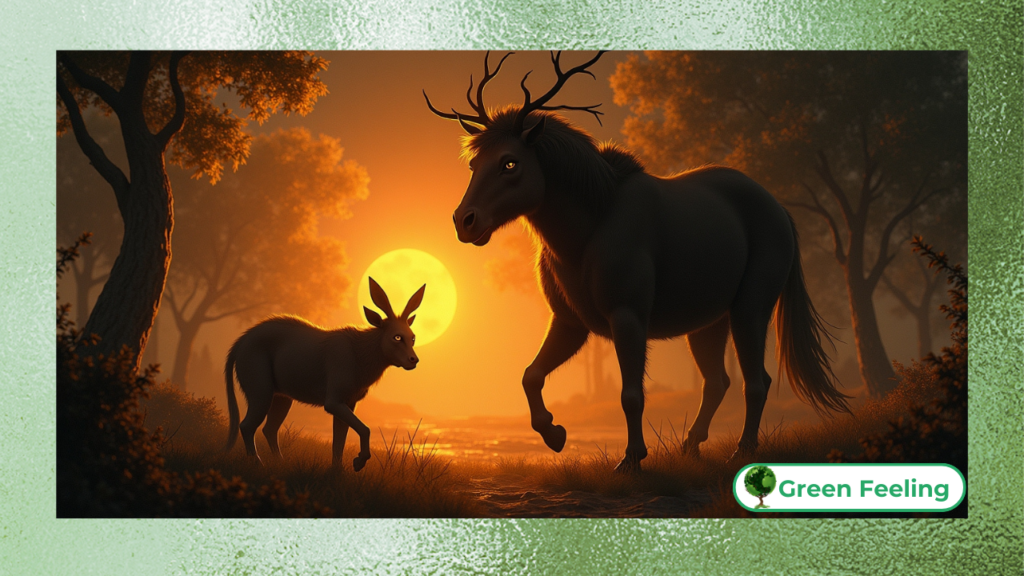
Passed down orally through generations, these narratives not only explain natural phenomena but also convey moral and spiritual values.
In this article, we will explore the spirits of the earth and the mystical creatures that populate these legends, highlighting their cultural and symbolic significance.
1. The Origins of African Mythology
African mythology has its roots in the oral traditions of hundreds of ethnic groups, each with its own stories and deities.
These myths served to explain the creation of the world, the emergence of humanity, and the mysteries of nature.
Key Points:
- African myths are deeply tied to the cultural identity of various ethnic groups.
- Oral traditions have preserved these stories for centuries, even in the absence of written records.
According to John Mbiti, a renowned scholar of African religions,
“Myths are not just tales; they are the essence of a people’s worldview and their connection to the divine” (Mbiti, 1969).
1.1. Cultural Diversity
Africa is a continent with over 50 countries and thousands of languages and cultures. This diversity is reflected in its mythologies, which vary from region to region.
For example:
- Yoruba (Nigeria): Known for their Orishas, deities who govern aspects of life and nature.
- Zulu (South Africa): Their stories include creatures like the Impundulu, the thunderbird.
- Akan (Ghana): The famous Anansi, the trickster spider, is a central figure in their narratives.
Key Points:
- Each ethnic group has its own unique pantheon of gods and spirits.
- Myths often reflect the geography and environment of the region.
2. Spirits of the Earth
Spirits of the earth are entities revered in many African cultures. They represent natural forces and are seen as protectors or guardians.
2.1. Ancestral Spirits
Ancestors are central figures in African mythology. It is believed that they continue to guide and protect their families after death.
Key Points:
- Ancestral spirits are often consulted in rituals and ceremonies.
- They serve as a bridge between the living and the spiritual world.
As Chinua Achebe explains in Things Fall Apart,
“The ancestors are not dead; they live on in the hearts and minds of their descendants” (Achebe, 1958).
+ African Mythology: Spirits of the Earth and Mystical Creatures
2.2. Nature Deities
Many spirits are associated with natural elements, such as rivers, mountains, and forests. Examples include:
- Oshun (Yoruba): Goddess of rivers and fertility.
- Mami Wata: A water spirit revered throughout West and Central Africa, associated with healing and prosperity.
Key Points:
- Nature deities symbolize the interconnectedness of humans and the environment.
- They are often invoked for blessings related to agriculture, health, and prosperity.
3. Mystical Creatures
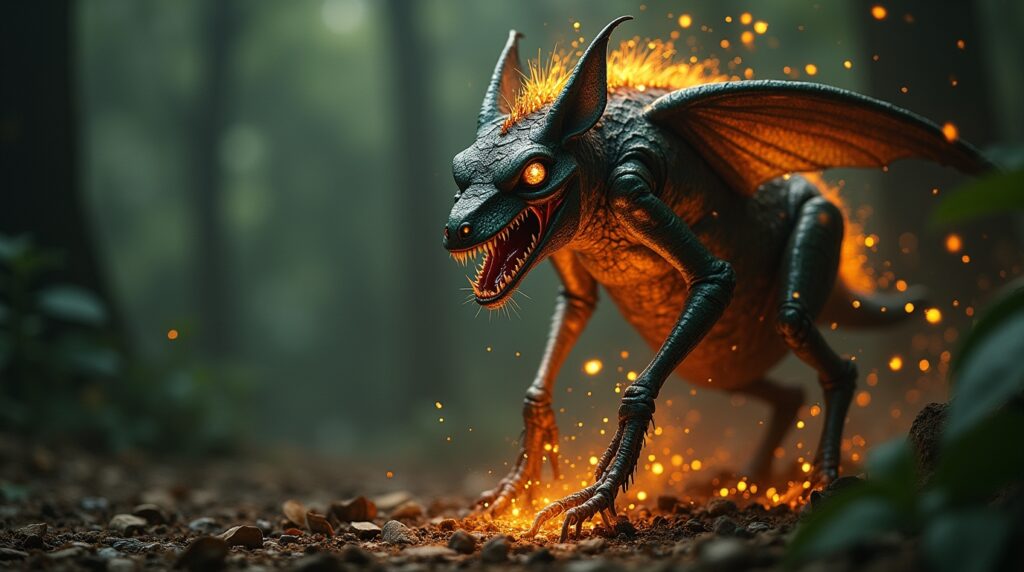
In addition to spirits, African mythology is filled with mystical creatures that enchant and terrify. These beings often personify fears, desires, or moral lessons.
3.1. Adze (Ewe)
The Adze is a vampiric creature that transforms into a firefly to attract its victims. It symbolizes the fear of the unknown and the importance of vigilance.
Key Points:
- The Adze is often used in stories to teach caution and awareness.
- It is a popular figure in the mythology of the Ewe people of Ghana and Togo.
According to Robert Farris Thompson, “The Adze represents the duality of nature—both beautiful and dangerous” (Thompson, 1984).
3.2. Impundulu (Zulu)
The Impundulu, or “lightning bird,” is a creature associated with witchcraft. It is said to control lightning and storms, serving as a familiar to witches.
Key Points:
- The Impundulu is often depicted as a large bird with sharp claws.
- Its stories highlight the power of nature and the dangers of meddling with supernatural forces.
+ The Role of Goddesses in Ancient Mythology
4. Symbolism and Lessons of Myths
African myths are rich in symbolism and offer valuable lessons.
For example:
- Respect for nature: Many stories emphasize the importance of living in harmony with the environment.
- Community values: Loyalty and cooperation are recurring themes.
- Courage and wisdom: Mythological heroes often overcome challenges using intelligence and bravery.
Key Points:
- Myths serve as moral guides for individuals and communities.
- They reinforce cultural values and social norms.
As Zora Neale Hurston notes in Tell My Horse, “Myths are the soul of a people, carrying their hopes, fears, and dreams” (Hurston, 1938).
5. African Mythology in Modern Culture
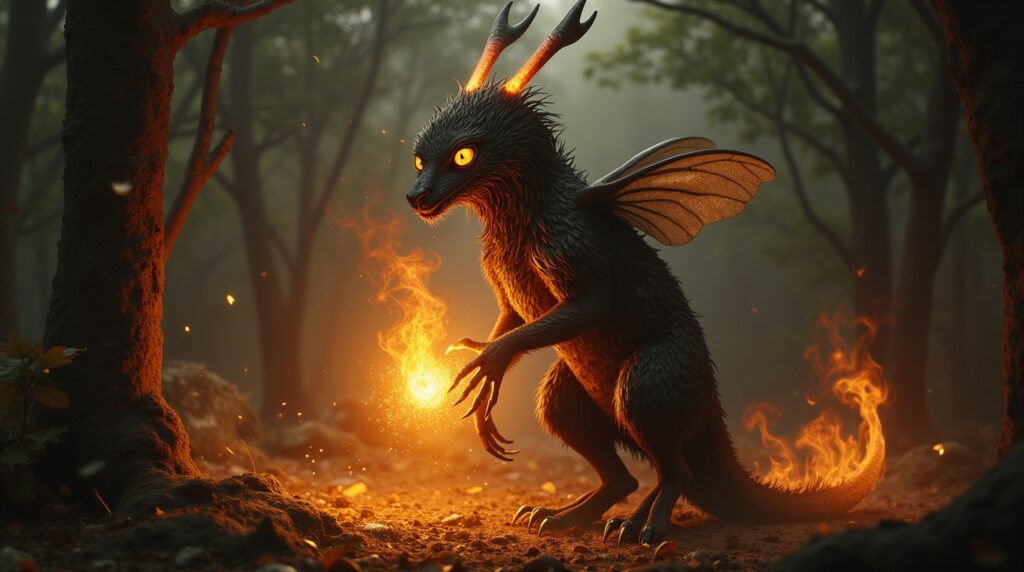
African mythology continues to influence contemporary culture, inspiring works of art, literature, and film.
5.1. Literature and Art
Authors like Chinua Achebe and Amos Tutuola have incorporated mythological elements into their works. Visual artists also depict deities and creatures in their creations.
Key Points:
- African mythology has inspired globally acclaimed novels and artworks.
- It provides a rich source of inspiration for creative expression.
5.2. Films and Media
Movies like “Black Panther“ have brought elements of African mythology to a global audience, highlighting the continent’s cultural richness.
Key Points:
- Modern media is helping to preserve and popularize African myths.
- These stories are being adapted to resonate with contemporary audiences.
+ Creatures of Nature in Mythology: From Medusa to Cerberus
Tables
Table 1: Key Spirits in African Mythology
| Spirit Name | Culture/Region | Role/Description |
| Oshun | Yoruba (Nigeria) |
Goddess of rivers and fertility
|
| Mami Wata | West/Central Africa |
Water spirit of healing and prosperity
|
| Anansi | Akan (Ghana) |
Trickster spider god of stories
|
Table 2: Mystical Creatures in African Mythology
| Creature Name | Culture/Region | Description |
| Adze | Ewe (Ghana/Togo) |
Vampire-like firefly
|
| Impundulu | Zulu (South Africa) |
Lightning bird associated with witchcraft
|
| Grootslang | South Africa |
Serpent-elephant hybrid guarding treasures
|
Conclusion
African mythology is a cultural treasure that offers profound insights into the relationship between humans, nature, and the divine.
Its spirits and mystical creatures not only entertain but also teach timeless lessons.
By exploring these stories, we can appreciate the richness and diversity of African traditions.
FAQ
1. What are the Orishas?
The Orishas are deities in the Yoruba religion, each responsible for an aspect of life or nature.
2. Who is Mami Wata?
Mami Wata is a water spirit revered in many African cultures, associated with healing, prosperity, and beauty.
3. What is the importance of African myths today?
They continue to inspire art, literature, and film, while preserving African cultural identity.
4. What does the Grootslang symbolize?
The Grootslang symbolizes the dangers of greed and the importance of respecting nature’s limits.
References
- MBITI, John. African Religions and Philosophy. London: Heinemann, 1969.
- ACHEBE, Chinua. Things Fall Apart. New York: Anchor Books, 1958.
- THOMPSON, Robert Farris. Flash of the Spirit: African & Afro-American Art & Philosophy. New York: Random House, 1984.
- HURSTON, Zora Neale. Tell My Horse: Voodoo and Life in Haiti and Jamaica. New York: Harper Perennial, 1938.
